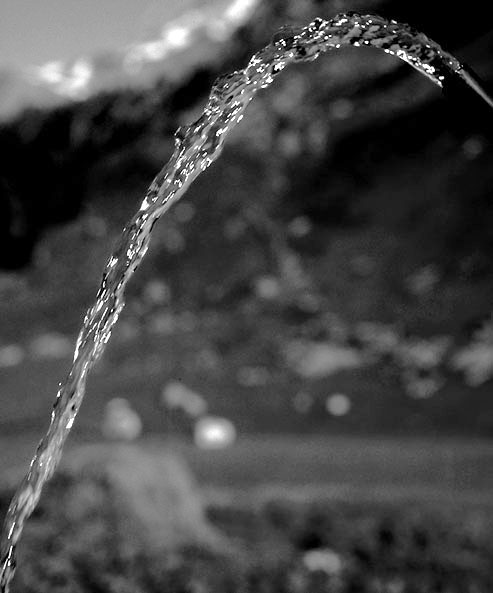XV [ZWEITER TEIL]
O Brunnen-Mund, du gebender, du Mund,
der unerschöpflich Eines, Reines, spricht,—
du, vor des Wassers fließendem Gesicht,
marmorne Maske. Und im Hintergrund
der Aquädukte Herkunft. Weither an
Gräbern vorbei, vom Hang des Apennins
tragen sie dir dein Sagen zu, das dann
am schwarzen Altern deines Kinns
vorüberfällt in das Gefäß davor.
Dies ist das schlafend hingelegte Ohr,
das Marmorohr, in das du immer sprichst.
Ein Ohr der Erde. Nur mit sich allein
redet sie also. Schiebt ein Krug sich ein,
so scheint es ihr, daß du sie unterbrichst.
Rainer Maria Rilke (1922)
|
XV [SECOND PART]
O fountain mouth, giver, you, mouth, which
speaks inexhaustibly of that one, pure thing,—
you, mask of marble placed before
the water's flowing face. In the background
the aqueducts' source. Further, beyond
all the graves, on the slopes of the Apennines,
they bring you your stories, that then,
upon the black aging of your chin,
pour over into the vessel below.
This is the ear that sleeps, laid down,
the ear of marble, into which you always speak.
An ear of the Earth. Only with herself
alone does she thus converse. Insert a jug,
and it seems to her that you interrupt.
(tr. Cliff Crego)
|


